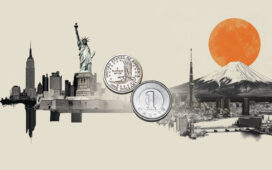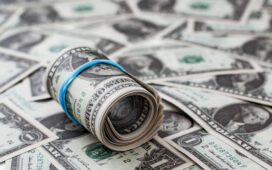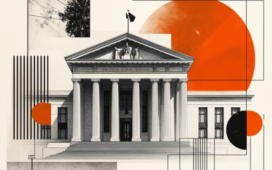SINGAPORE – Although the US dollar is set to remain as the dominant currency in official reserves, it could have a shakier foothold in the years ahead, with the euro, renminbi and gold poised to gain ground.
Economic and geopolitical risks are driving a re-evaluation of US dollar holdings, according to a UBS survey of 40 central banks and reserve managers.
The majority of respondents had little trust in US President Donald Trump’s right-leaning Make America Great Again (Maga) policies, which include tariffs and cost-cutting measures.
Nearly a third of respondents had reduced or were planning to reduce their exposure to US assets.
Dr Massimiliano Castelli, head of global sovereign markets strategy and advice at UBS Asset Management, said there were clear signs of diversification from the US dollar over the past year, with the euro being the biggest beneficiary of the move.
For instance, more than half of respondents that altered their currency allocations lowered their dollar holdings, with only 23 per cent making additions. In contrast, almost 70 per cent of the respondents added to their euro reserves.
UBS expects allocations to the euro and renminbi to continue to grow, in line with the findings of its previous survey. These currencies are “most likely to benefit from macroeconomic and geopolitical shifts over the next five years”, Dr Castelli said.
Global central banks continue to keep the majority of their currency reserves in dollars, and this is unlikely to change. The reserves can be used for trade or to fulfil international obligations.
But geopolitical developments and President Trump’s fluctuating trade policies have put pressure on the US dollar. It has fallen by more than 10 per cent against a basket of major currencies in the first half of this year.
This marked the greenback’s worst first-half performance since 1973, when then US President Richard Nixon stopped allowing the currency to be converted to gold at a fixed rate.
Most of the annual survey’s respondents did not believe that Mr Trump’s Maga policies would give a long-term boost to the US economy.
Respondents cited the erosion of independence of the Federal Reserve, the weakening of the rule of law, and deterioration of economic data as their top concerns.
They also raised the possibility of the US weakening the dollar in the future, which would boost the attractiveness of its exports.
Dr Castelli told The Straits Times that “Trump 2.0 policies have raised a lot of questions for reserve managers”. However, he said UBS has yet to see outflows from US Treasuries to non-US-dollar bond markets.
One asset that has grown in prominence is gold, which is typically seen as a safe haven in times of uncertainty.
A total of 36 per cent of respondents added to their gold reserves in the past year. More than half said they would raise their allocations to the precious metal over the next 12 months.
“Gold remains in strong demand and is expected to deliver the highest risk-adjusted returns over the next five years,” Dr Castelli said.
“The diversification trend across currencies, asset classes and regions is accelerating as a result of recent macroeconomic and geopolitical shifts,” he added.



